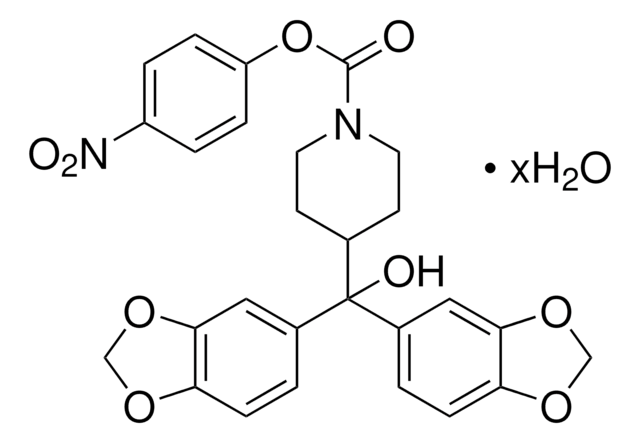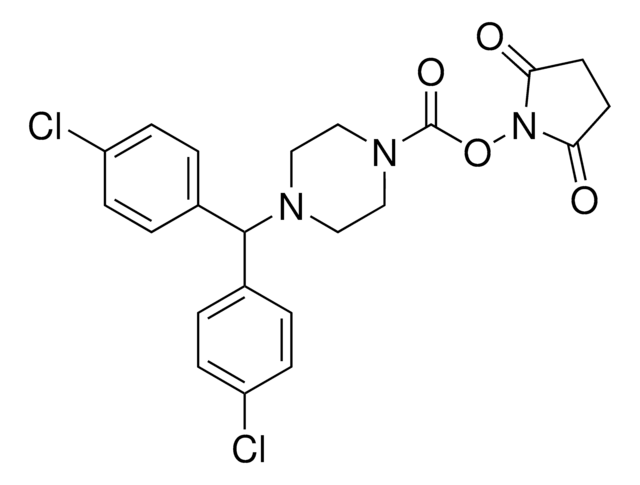475741
MAGL Inhibitor III, JZL184
The MAGL Inhibitor III, JZL184, also referenced under CAS 1101854-58-3, controls the biological activity of MAGL.
Synonyme(s) :
MAGL Inhibitor III, JZL184, 4-Nitrophenyl-4-(dibenzo[d][1,3]dioxol-5-yl(hydroxy)methyl)piperidine-1-carboxylate, Monoacylglycerol Lipase Inhibitor III, JZL184
About This Item
Produits recommandés
Niveau de qualité
Pureté
≥97% (HPLC)
Forme
solid
Fabricant/nom de marque
Calbiochem®
Conditions de stockage
OK to freeze
protect from light
Couleur
white to off-white
Solubilité
DMSO: 50 mg/mL
Conditions d'expédition
wet ice
Température de stockage
−20°C
InChI
1S/C27H24N2O9/c30-26(38-21-5-3-20(4-6-21)29(32)33)28-11-9-17(10-12-28)27(31,18-1-7-22-24(13-18)36-15-34-22)19-2-8-23-25(14-19)37-16-35-23/h1-8,13-14,17,31H,9-12,15-16H2
Clé InChI
SEGYOKHGGFKMCX-UHFFFAOYSA-N
Description générale
Avertissement
Reconstitution
Autres remarques
Long, J.Z., et al. Nature Chem. Biol.16, 744.
Long, J.Z., et al. 2009. Nature Chem. Biol.5, 37.
Pan, B., et al. 2009. J. Pharmacol. Exp. Ther.331, 591.
Informations légales
Code de la classe de stockage
11 - Combustible Solids
Classe de danger pour l'eau (WGK)
WGK 2
Point d'éclair (°F)
Not applicable
Point d'éclair (°C)
Not applicable
Certificats d'analyse (COA)
Recherchez un Certificats d'analyse (COA) en saisissant le numéro de lot du produit. Les numéros de lot figurent sur l'étiquette du produit après les mots "Lot" ou "Batch".
Déjà en possession de ce produit ?
Retrouvez la documentation relative aux produits que vous avez récemment achetés dans la Bibliothèque de documents.
Notre équipe de scientifiques dispose d'une expérience dans tous les secteurs de la recherche, notamment en sciences de la vie, science des matériaux, synthèse chimique, chromatographie, analyse et dans de nombreux autres domaines..
Contacter notre Service technique






